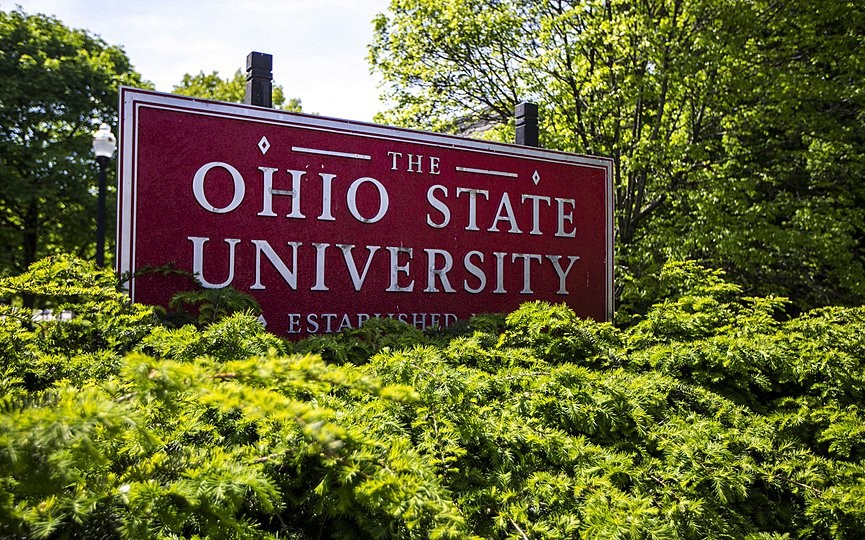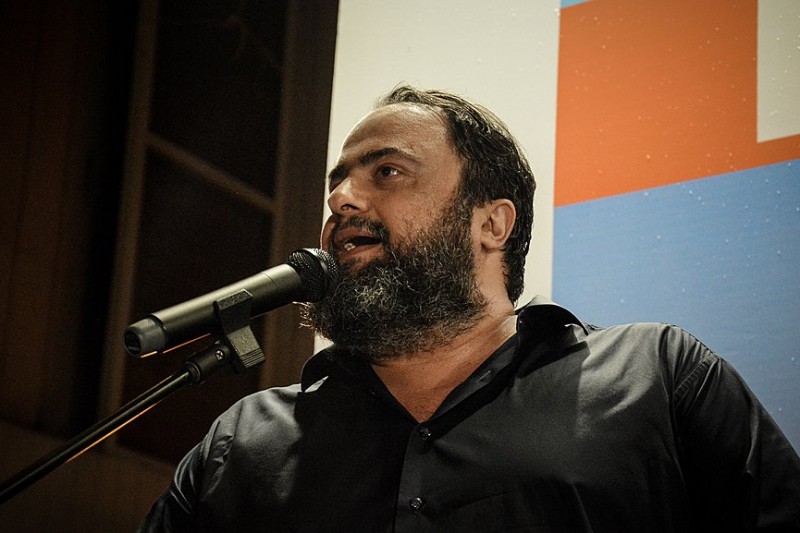
Miltiadis Marinakis Endowed Professorship at OSU Begins in the Fall
COLUMBUS, OH – The Ohio State University (OSU) Miltiadis Marinakis Endowed Professorship of Modern Greek Language and Culture, named in honor of the father of Greek shipping owner and businessman Evangelos Marinakis, begins in the fall as a bridge between the United States and Greece, in.gr reported.
As noted on the OSU website, the newly established endowed faculty position "was established with funds raised collectively by the Greek community — with a major commitment from a lead donor and gifts from members of the Ohio Hellenic Paideia (formerly the Modern Greek Steering Committee) and other supporters."
With Evangelos Marinakis as the major sponsor, the fundraising effort from 2015-2020 helped ensure "the continuation of the existence of a department that was facing the risk of closure," in.gr reported, adding that the "Greek language will continue to echo in the classrooms, since the Board of Trustees of Ohio State University officially announced the establishment of the Miltiadis Marinakis Endowed Professorship of Modern Greek Language and Culture in June 2020."
The OSU Modern Greek Program is located at the third largest state university in the United States. Established in 1870, OSU is among the top-rated institutions for academic excellence and has the 18th largest university library in North America with over 5.8 million books. The Modern Greek Program was established in the 1970s when a group of Greek-Americans initiated Project Paideia to raise funds to launch the program, in.gr reported, adding that "since then, more than 12,000 students have enrolled in one or more of its courses."

Evangelos Marinakis named the Endowed Professorship in “memory of his father, who inspired in him love towards his fellow human beings and a sense of duty in regards to Greek tradition and culture,” in.gr reported.
The OSU Modern Greek Program is a bridge between the USA and Greece with world-class scholars teaching the Greek language, culture, but also ethnography, history, and literature, in.gr reported, noting that “apart from their teaching and research projects they work closely with the local community and often travel abroad to strengthen the ties of their students with Greece.”
For almost forty years, OSU undergraduate and graduate students have participated in archaeological projects in Greece, sponsored by the Department of History under the direction of Professor Timothy Gregory and his wife and coordinator of the project Lita Tzortzopoulou-Gregory. Two such projects are the excavations at Isthmia in Korinth and the Australian Paliochora-Kythera Archaeological Survey (APKAS), which also includes the Karavas Water Project (KWP) at Karavas a small village in northern Kythera.
The OSU excavations at Isthmia began as an initiative of the American School of Classical Studies in Athens and are conducted with authorization from the Greek Ministry of Culture, in.gr reported, adding that “the project follows upon the work of Oscar Broneer of the University of Chicago between 1952 and 1967 and is the continuation of the excavation and research by Paul A. Clement of UCLA,” and “Professor Timothy Gregory became the director of the project in 1987 and OSU undertook sponsorship of the excavation.”
According to Lita Tzortzopoulou-Gregory, also Executive Officer of the Athens Branch of the Australian Archaeological Institute at Athens, “the Isthmia excavation has been an invaluable source for the Ohio State University which has helped us create a strong Ancient History Program and has provided a site to train undergraduate and graduate students in history, many of whom have moved on to prestigious university posts all over the U.S.,” in.gr reported.
“Since 1983 and almost every year until 2016 students from OSU have had a unique opportunity to study abroad at Isthmia and from 1999 until 2016 students have taken part in archaeological projects at the island of Kythera including APKAS and KWP,” in.gr reported.
Lita Tzortzopoulou-Gregory continues her presentation of the projects, in.gr reported, noting that “the students who participate are dedicated History students and other undergraduate students who want to use this experience to have a different approach to the world they live in. During these years, these projects offered a unique opportunity to students to live in small Greek villages, to observe local life and get to know local communities, while at the same time learning about detailed archaeological work and this study has rewarded them with amazing knowledge about the world of people who lived hundreds or thousand years ago.
“Many of the students have pursued academic careers, but most of them went on to excel in agriculture, business, and professions that cover different sectors of the labor force. One of the things that our students have always been telling us is how the rigorous program, the high standards and the manual labor necessary for success in the OSU archaeological excavations in Greece have helped them to deal with difficulties and obstacles that they inevitable face in their lives after the completion of their studies at OSU,” Tzortzopoulou-Gregory told in.gr.
